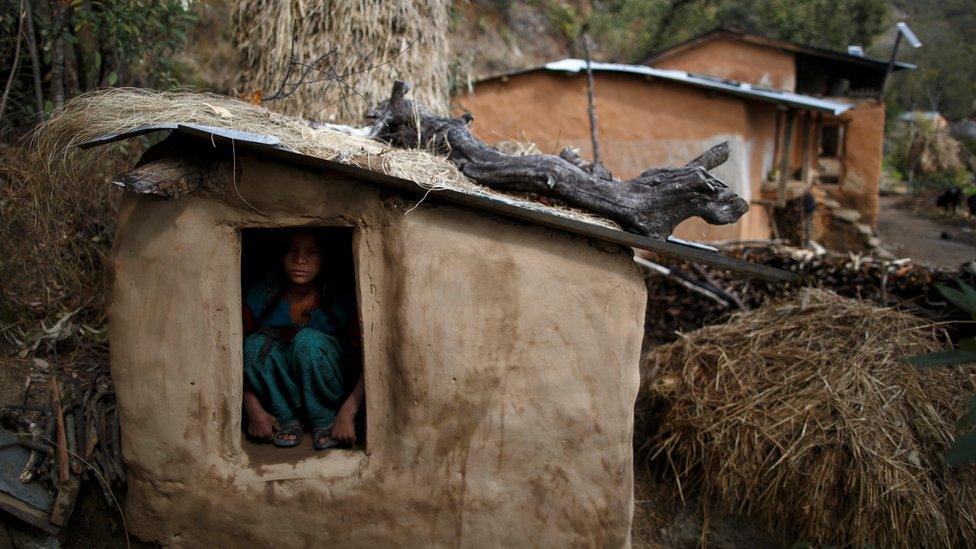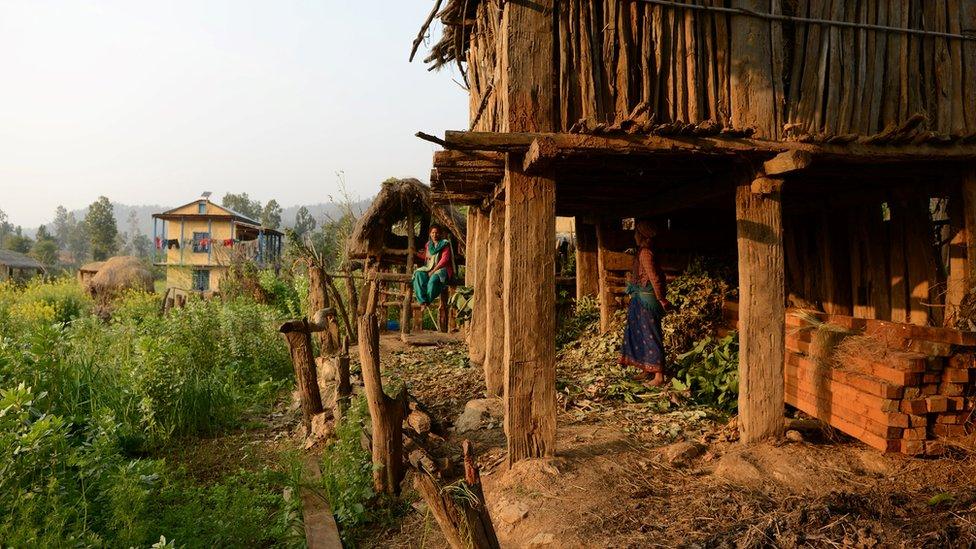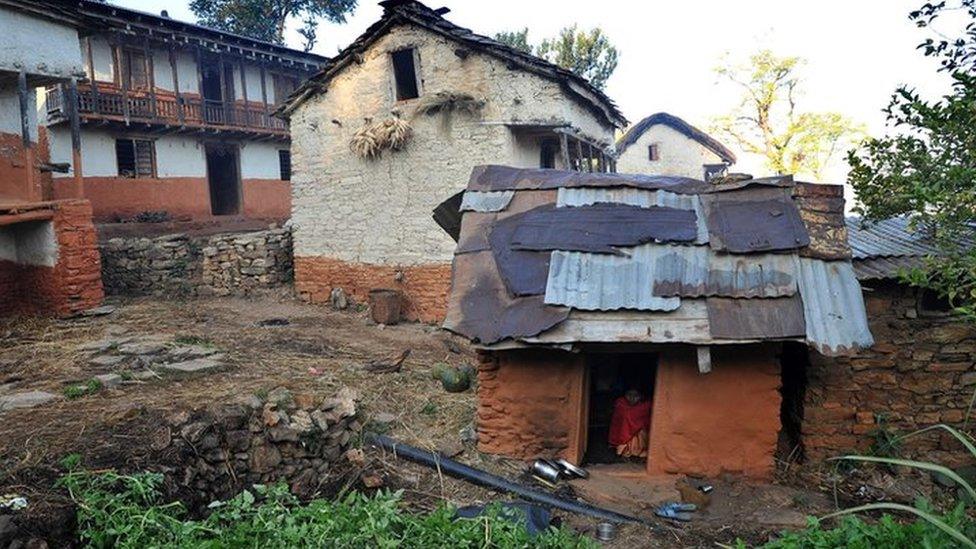Nepal man arrested over death of woman in 'menstruation hut'
- Published

The tradition of Chhaupadi cuts women off from local society during their periods and after childbirth
Nepali police have arrested the brother-in-law of a woman who died in a so-called "menstruation hut".
Parbati Buda Rawat, 21, was found dead on Monday after suffocating from a fire she lit to stay warm in the hut.
It is believed to be the first arrest for Chhaupadi, an outlawed practice which considers women impure during their periods and after childbirth.
If convicted, the man faces three months in prison and a fine of 3,000 Nepali rupees ($26; £23).
Police in the western Achhan district said they are investigating whether the suspect, 25-year-old Chhatra Rawat, forced Ms Rawat to stay in the hut. It is unclear if he has been charged.
Under the centuries-old Hindu custom, women can be forced to sleep in huts or cattle sheds and are banned from touching some foods, religious icons and men.
'When I have my period, I can't touch anyone else'
The huts can be bitterly cold and those inside can also be exposed to attacks. There have been several cases of suffocation, and at least one teenage girl has died after being bitten by a snake.
Nepal banned the traditional practice of exiling menstruating women and girls from their family homes in 2005 and criminalised it in 2017. But it remains widespread in some rural areas, where it is believed to dispel bad fortune.
At least three women have died in "menstrual huts" this year - in one instance, a mother suffocated to death with her two children.
"It is positive to see the police act proactively and it will help discourage people from following the tradition," said Radha Poudel, a Nepali activist, speaking with AFP news agency.
"But there is a long way to go to end it."
- Published4 February 2019

- Published10 January 2019
